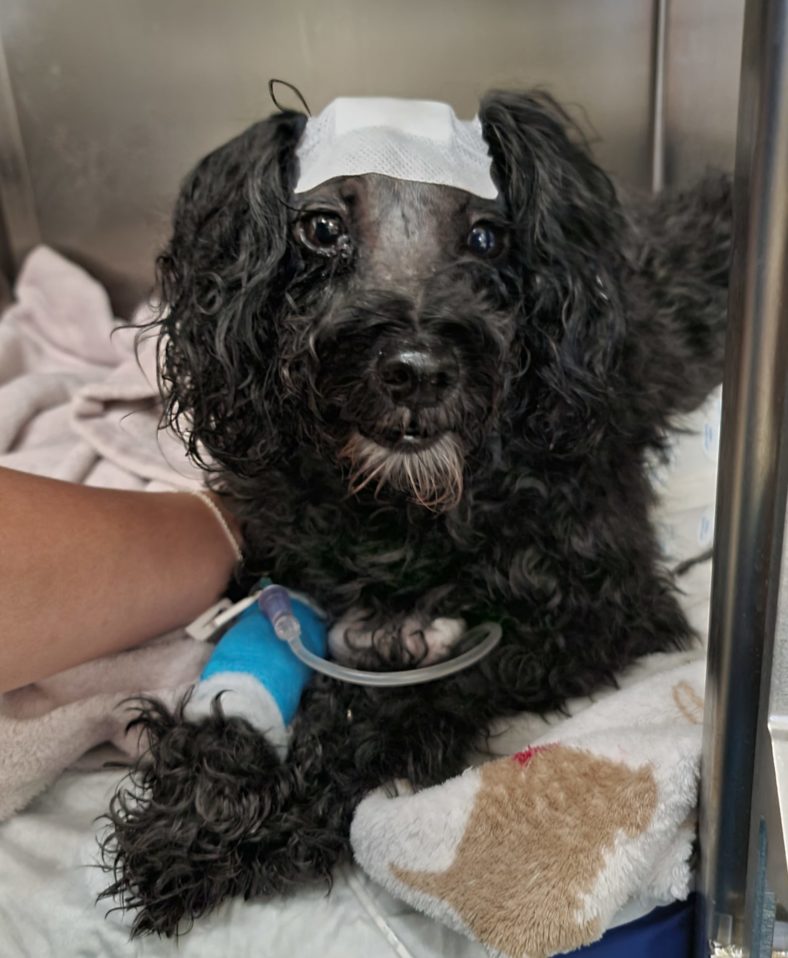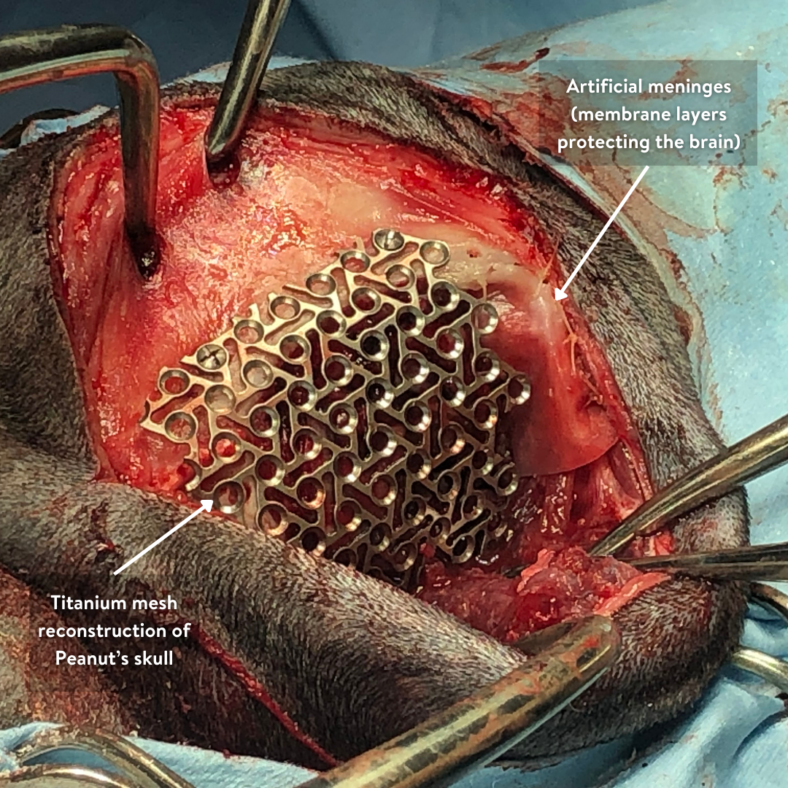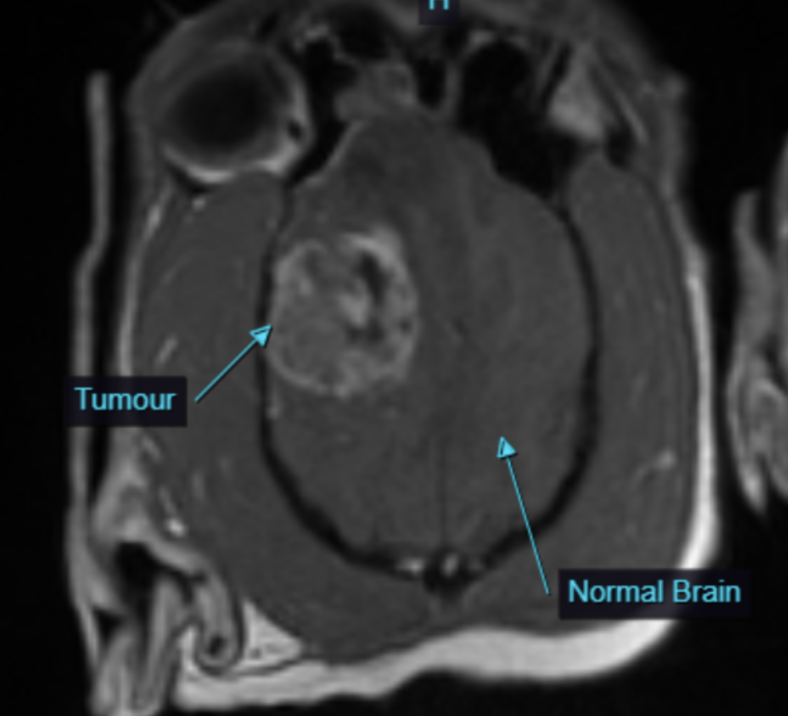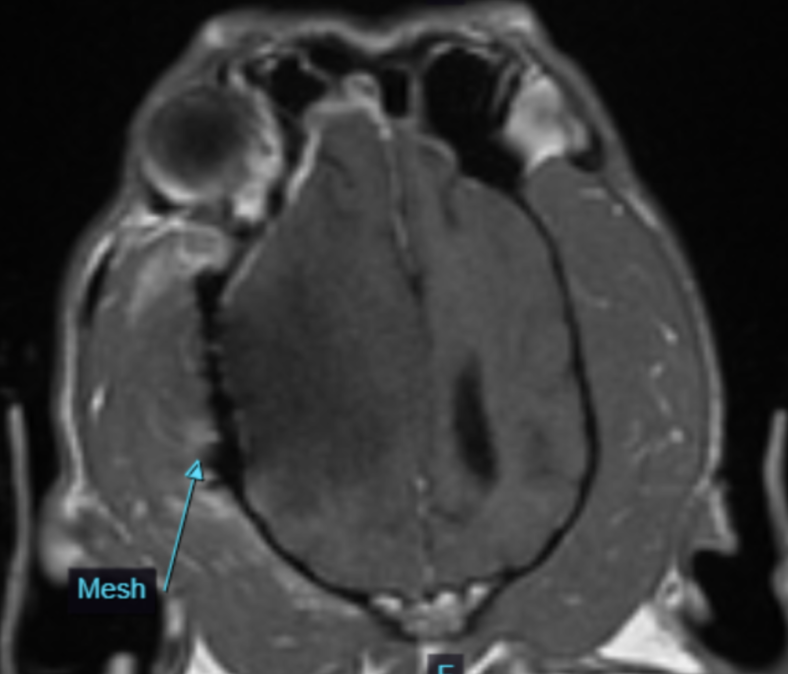Our Community
Peanut’s life-saving surgery

Peanut is a beautiful 7 year old Schnauzer who had been suffering from severe seizures. She had also started to display other neurological signs such as continuously digging her bed and circling to the right side (these are termed ‘compulsive behaviours’). Despite trying several different treatment options and various medications the seizures and behavioural symptoms were not improving.
Peanut was referred to The Ralph and seen by Cris, our Neurology and Neurosurgery Specialist. After a thorough examination Peanut was admitted for diagnostic tests, which included blood tests and an MRI scan (which produces detailed images of the brain). Sadly, Peanut’s MRI revealed that she had a large tumour pressing on the right side of her brain causing significant swelling. This swelling was creating an increase in the pressure within the skull, a condition that can be life threatening. Peanut was given medications to reduce the swelling, but unfortunately her seizures continued and became progressively worse. Therefore only one treatment option remained; Peanut would require surgery to remove the brain tumour.

The advanced neurosurgery was led by Neurology Specialists Cris and Lorenzo, and assisted by Senior Neurology Intern Despoina, with support from our specialist anaesthesia team. It took a gruelling four hours to remove the tumour from Peanut’s brain.
The surgery involved reconstructing Peanut’s skull using a titanium mesh, so that her brain remains protected. The team also fitted an artificial meninges (membrane layers which protect the brain) to block air from Peanut’s nasal passage entering the brain. Once the procedure was finished Peanut had an MRI scan to check the tumour had been successfully removed – and it was!


Pictured above left: an MRI scan before surgery showing the tumour in Peanut’s brain. Right: Post-operative MRI taken immediately after surgery showing no evidence of the tumour.
Peanut woke up from the surgery without any signs of complications and was behaving like nothing had happened! She showed a clear instant change in her demeanour and her neurological behaviours which was heartwarming to see.
The analysis of the tumour revealed that it was a meningioma, as was suspected from the initial MRI scan. Meningioma is a fairly common and relatively slow-growing brain tumour that can return after being removed (although this could take several months or even some years).
Peanut returned home to her family three days after her surgery and continued to show great progress and at her recheck four weeks later. She is still seizure-free and according to her family “she is back to her usual self and it is like having a puppy again in the house!”
Thank you for reading Peanut’s incredible story. For regular news and patient stories, be sure to check out our Instagram, Facebook and LinkedIn.
Take care,
Team Ralph 🐾
